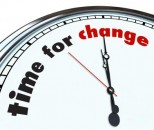
What habit or behavior do you keep doing even when you know you need to make a change? Just thinking about changing is not enough. You need a plan to move forward and replace that behavior with a healthier choice. Your habit might be you eat too much, exercise too little, or react in a way that causes distress to you or others.
The Habit Change Workbook by James Claiborn PhD is a good model to use when you are ready to begin. So…. can you choose one behavior(habit) that you want to change and write it down as clearly as you can?
First write down how often you behave this way so you can know where you are starting and what is a reasonable change. This step is the beginning of your commitment to change.
List the advantages of making this change. You are ready to begin when you know that keeping things the same is not working for you.
Next, identify what are the specific feelings and situations that lead up to your unhealthy behavior. Make sure you know the situations that cause the behavior. Identify your mood when your habit shows up. Really try and define what is happening that causes you to begin behaving this way. By knowing these details, you can be on the lookout for those situations. (Maybe you get angry when you are either tired or hungry.) Knowledge is power.
Find a way to practice daily some form of stress relief or relaxation while you are making this change. Change is hard so you need healthy coping tools. (spend time in nature, stop, breathe and pause, call a friend)
Develop something else you can do whenever you feel the urge to start your problem habit. Choose something to do as often and frequently as you need. Be sure that the alternative behavior is one you can do for several minutes. This behavior must be incompatible and different from your habit. For example, if you overeat at night while watching TV, sit in a different place or try another activity (reading, crafts or take a walk)
Whenever you notice the behaviors that lead to your bad habit, begin your other healthy response. Rehearse your healthy response every day.
You will need help from one or two people who can help you change. Let them know that you need positive feedback and not criticism. Let them know you need some praise for your good work and your efforts to change.
List the situations you avoid because of your habit. Plan to put yourself in those situations to show yourself the improvements you can make. List the things you plan to do and dates you would like to do them. This will reinforce how you can change your problem behavior.
Change is not easy. I hope these steps will help you begin the process.
“Correcting bad habits cannot be done by forbidding or punishment.” Robert Baden-Powell
“The easier it is to do, the harder it is to change.” Eng’s Principle
“It’s easier to act your way into a new way of thinking, than think your way into a new way of acting.” - Jerry Sternin
